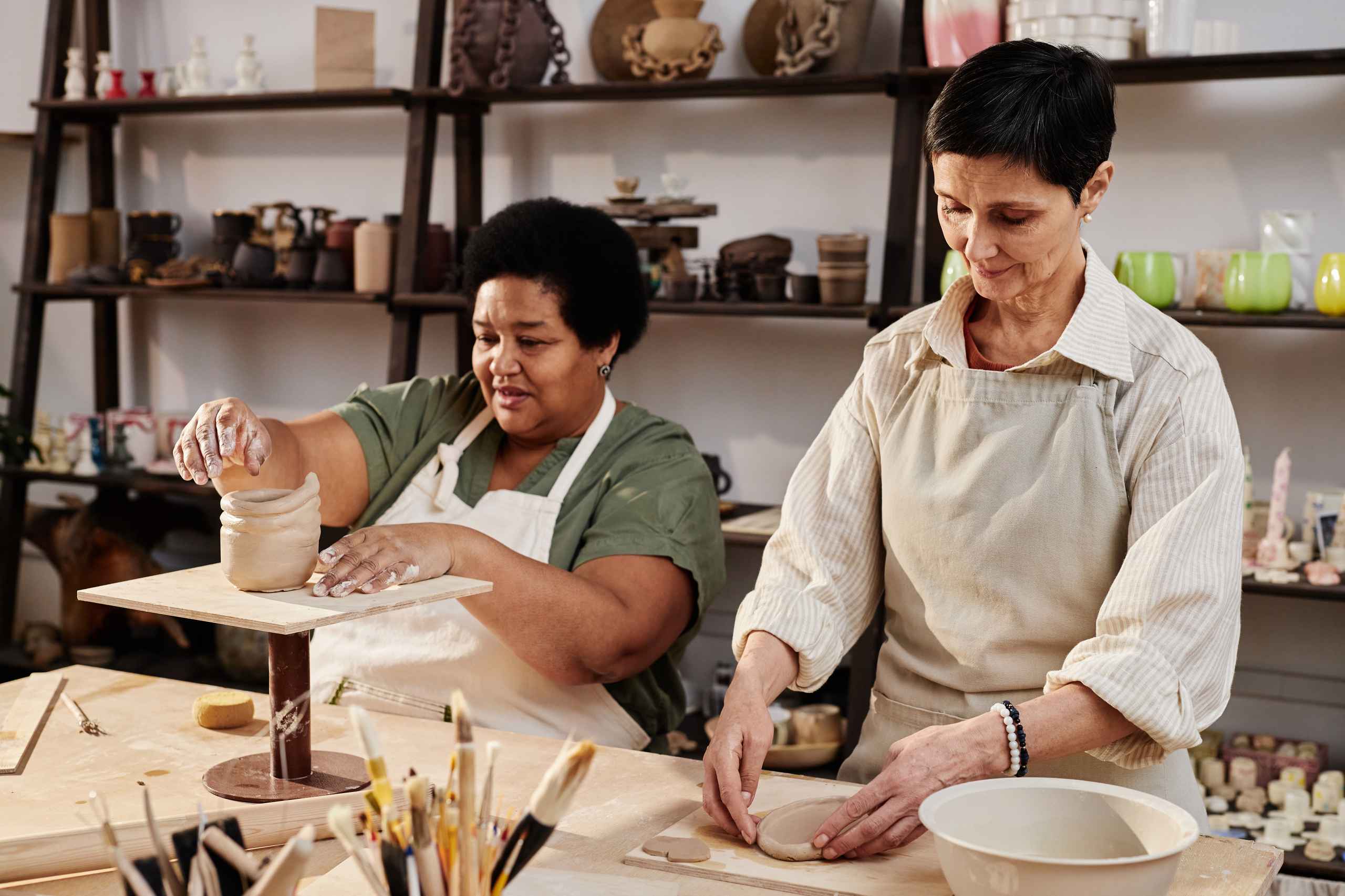Address
304 North Cardinal
St. Dorchester Center, MA 02124
Work Hours
Monday to Friday: 7AM - 7PM
Weekend: 10AM - 5PM
Address
304 North Cardinal
St. Dorchester Center, MA 02124
Work Hours
Monday to Friday: 7AM - 7PM
Weekend: 10AM - 5PM

Starting pottery can feel a little intimidating. What if the clay flies off the wheel? What if your bowl looks like a pancake? What if you really don’t know what you’re doing?
Good news: no one does at first. And that’s part of the fun.
Here are five things every beginner should know before stepping into the studio — little insights to ease the nerves and spark your curiosity.
Your piece won’t look like the instructor’s — and that’s a good thing. Pottery is meant to be imperfect. A tiny wobble, a quirky glaze, a curve that doesn’t quite match — these are the marks of something made by hand, by you.
“Wabi-sabi,” the Japanese philosophy of beauty in imperfection, lives in every cup and plate you’ll make.
Yes, the pottery wheel spins fast. Yes, it can feel like wrestling a tiny tornado. But with practice and the right touch, it becomes a dance — a steady rhythm between your fingers and the clay.
Start slow. Be patient. Even if your first piece collapses (and it might), you’ve already learned something new.
Clay remembers how it was treated. If you twist it, rush it, or forget to wedge it properly, it will show you. But it’s not spiteful — it’s just honest. Learning to work with clay teaches you to slow down, stay present, and respect the process.
Pottery is physical. It’s muscle memory, balance, and instinct. You won’t understand everything right away — and that’s okay.
Let your hands explore. Let them wobble and smooth and stretch. The wisdom comes, quietly and steadily.
There’s a strange and wonderful pride in creating something from nothing. You’ll walk out of your first class holding a lopsided cup like it’s a trophy — and it is.
Not because it’s flawless, but because you made it.
Every expert potter was once a beginner sitting at the wheel with clay under their fingernails and questions in their eyes. Don’t overthink it. Don’t wait to feel “ready.” Just show up, roll up your sleeves, and let the clay teach you what it knows.
Your first creation might not be beautiful — but the experience will be.